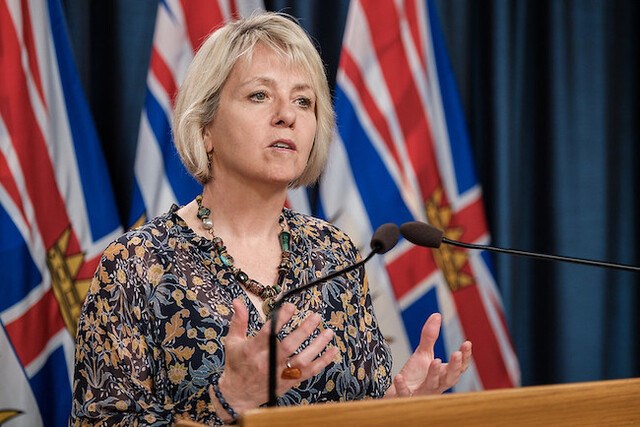Some of provincial health officer Dr. Bonnie Henry’s COVID-19 orders violated Canada’s Charter of Rights and Freedoms, a lawyer for a proposed class-action suit told a B.C. Supreme Court judge Dec. 13.
The lawsuit, filed by the Canadian Society for the Advancement of Science in Public Policy and led by Kipling Warner, seeks to challenge and obtain compensation for various measures, mandates and restrictions imposed in response to the pandemic.
Henry is named as a defendant in the lawsuit.
This week, Justice David Crerar is hearing arguments on an application for class-action certification. He is listening to applications of various kinds as well as evidence to determine if a class action is a suitable choice for the case. The case could involve many people but would be represented by what is known as a "representative claimant."
In this case, Warner has been that claimant but a soon-to-be heard application might change that.
On Dec. 12, plaintiff lawyer Polina Furtula said the challenge revolves around whether or not the pandemic warranted having an emergency declared. She said the provincial legislative conditions for the declaration of an emergency were not met.
She called the resulting response “disproportionate.”
On Dec. 13, Furtula began going through several of Henry’s orders.
She addressed how some of the orders allegedly breached charter rights protection from unreasonably infringed freedoms; freedom of conscience and religion; thought, belief, opinion and expression, including freedom of the press and other media of communication; peaceful assembly; and of association.
After the World Health Organization declared the COVID-19 outbreak a pandemic in March 2020, Henry issued a number of orders designed to reduce the spread of the virus in the province. That included requiring proof of vaccination to enter a number of businesses like restaurants. The so-called "vaccine passport" was in place in B.C. from September 2021 to April 2022.
It was the vaccine passport order as well as various gathering orders — religious and social — Furtula addressed Dec. 12. She called some of the orders ambiguous; she told the court those limiting gatherings were contrary to the charter.
Much of the Dec. 12 court discussion revolved around how bound Crerar is by previous court rulings. Under the court doctrine of ‘stare decisis,’ courts must follow earlier decisions when the same points arise again in litigation.
One such decision is from B.C. Supreme Court Chief Justice Christopher Hinkson in March 2021.
There, Hinkson ruled that while the ban on in-person, indoor church services was an infringement on British Columbians' charter rights, it was "reasonable and proportionate" under Section 1 of the charter. But he did not find the same could be said about the ban on outdoor protests.
“If he‘s already made that pronouncement, what can I do?” Crerar said of Hinkson’s decision. “I’m stuck with that.”
However, said Furtula, the plaintiff is offering another point from that case, saying the data used to arrive at the health orders needs to be examined to see if the orders were proper.
She said data “made it seem as if the virus was... more dangerous than it actually was.”
The province is expected to bring various applications to end the proceedings. One of those could be an abuse-of-process application, an argument based on the fact that Warner has tried to litigate similar issues in other proceedings.



